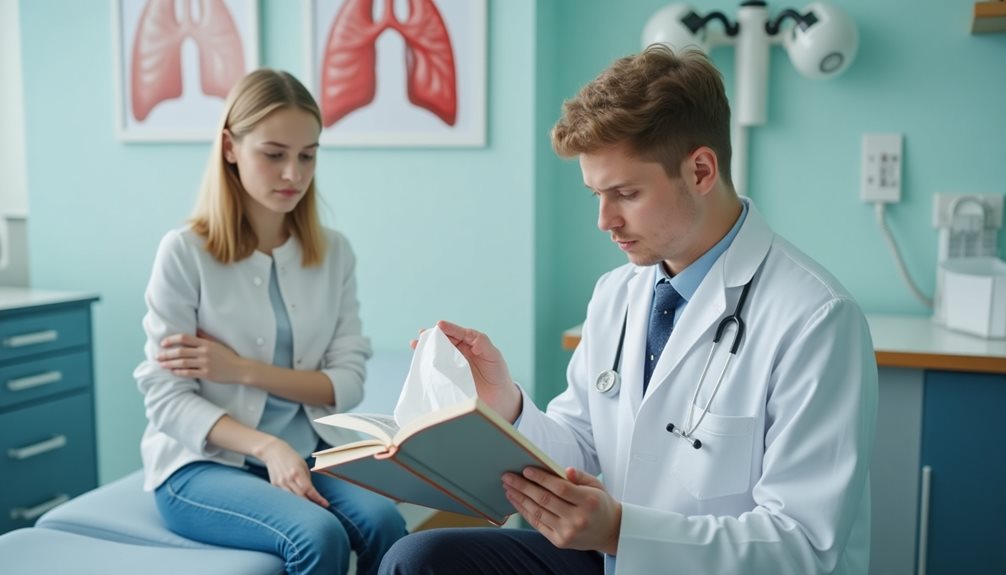Maneuvering through the Russian healthcare system can be both intimidating and enlightening for language beginners. While limited language skills may initially seem like a barrier, they also present an opportunity to engage more deeply with the culture. Acquiring basic medical vocabulary and understanding Russian healthcare etiquette are essential for facilitating communication and ensuring a smoother healthcare experience.
Strategies for Effective Communication

Traveling to or moving to Russia as a beginner in the language can present unique challenges in navigating the healthcare system. While limited language skills may feel daunting, they also provide an opportunity to engage with the local culture. Understanding basic medical vocabulary and familiarizing yourself with Russian healthcare etiquette are crucial steps for ensuring effective communication and a smoother healthcare experience.
To overcome language barriers and ensure successful interactions with healthcare providers, it is beneficial to learn essential Russian phrases. For those involved in medical tourism or relocating, knowing phrases like “Я плохо себя чувствую” (I feel unwell) or “У меня аллергия на…” (I am allergic to…) can significantly enhance your experience. Preparing these phrases allows you to navigate the healthcare system with greater confidence and reduces the intimidation factor associated with medical visits.
Understanding basic greetings and introductions is crucial for navigating the Russian healthcare system, especially if you’re unfamiliar with the language. A polite “Здравствуйте” (Zdravstvuyte), meaning “Hello,” sets a respectful tone and helps establish rapport with medical personnel.
Key Phrases for Communication
- Introducing Yourself
Use “Меня зовут…” (Menya zovut…) followed by your name to introduce yourself. This simple phrase helps bridge language barriers and fosters a welcoming environment, which is important in affirming your patient rights. - Declaring Your Status
To clarify your role, say “Я пациент” (Ya patsiyent), meaning “I am a patient.” This straightforward declaration ensures that your concerns are acknowledged and understood.
Making an Appointment
Securing a medical appointment can be straightforward if you understand the nuances of the Russian healthcare system:
- Types of Appointments
Clinics differentiate between routine check-ups and urgent visits. Be aware that some specialists may have longer wait times, so plan ahead. - Scheduling Flexibility
Many clinics operate on a first-come, first-served basis, making it essential to know their hours. - Insurance Considerations
Your insurance coverage may limit your choice of doctors and clinics, so familiarize yourself with these details.
Essential Appointment Phrases
Mastering the phrase “Я бы хотел(а) записаться на приём к врачу” (I would like to make an appointment with the doctor) is vital for scheduling consultations.
- Confirming Details
After expressing your intention to book an appointment, inquire about the doctor’s specialization and availability. Knowing how to ask about appointment specifics ensures you receive clear information regarding time and location.
Describing Symptoms
Understanding common symptoms that lead to medical visits in Russia is crucial for travelers unfamiliar with the language. Recognizing ailments like colds, headaches, and digestive issues can help in communicating effectively with healthcare providers. Familiarity with basic medical terms in Russian enhances the healthcare experience, allowing for clearer interactions.
Key Symptoms and Phrases
Common Symptoms:
- Headache: “У меня болит голова” (U menya bolit golova) – My head hurts.
- Cough: “У меня кашель” (U menya kashel’) – I have a cough.
- Runny Nose: “У меня насморк” (U menya nasmork) – I have a runny nose.
- Stomach Pain: “У меня болит живот” (U menya bolit zhivot) – My stomach hurts.
- Throat: “У меня болит горло” (U menya bolit gorlo) – My throat hurts.
- Temperature: “У меня температура” (U menya temperatura) – I have a fever.
Knowing these phrases enables patients to describe their conditions clearly, facilitating accurate diagnoses and appropriate treatments.
Importance of Communication
 In Russia, the healthcare system consists of various clinics and hospitals where cultural practices may differ from those in other countries. For instance, Russian doctors often adopt holistic approaches to treatment.
In Russia, the healthcare system consists of various clinics and hospitals where cultural practices may differ from those in other countries. For instance, Russian doctors often adopt holistic approaches to treatment.
Responding to Doctor’s Questions
During a medical appointment, expect questions like:
- “На что жалуетесь?” (Na chto zhaluyetes’?) – What are you complaining about?
- “Где болит?” (Gde bolit?) – Where does it hurt?
Responding clearly with phrases like “У меня…” (U menya…) helps convey your symptoms effectively.
Understanding Medical Instructions

Navigating medical instructions is crucial for effective healthcare in Russia. Clear communication can significantly influence treatment outcomes.
Key Medical Phrases
Familiarity with essential phrases can help ensure proper medication and procedures. For example:
- Принимайте по две таблетки три раза в день (Take two pills three times a day).
- Я сделаю вам укол (I will give you a shot).
- Вам нужно сделать анализы (You need to get tests done).
These phrases are vital for understanding your treatment plan and ensuring adherence to prescribed medications.
Importance of Clarification
When faced with language barriers, it’s essential to ask for clarification. Use phrases like:
- Помогите, пожалуйста! (Help me, please).
- Что это значит? (What does this mean?).
These questions help you fully grasp medical advice, leading to better health outcomes.
Additionally, in situations where language is a barrier, consider using translation tools or consulting bilingual resources. Many travel insurance policies offer translation services, which can be invaluable during medical emergencies.
Conclusion
Effective communication is key when seeking medical care in Russia. Familiarizing yourself with basic medical vocabulary and knowing how to ask for help can greatly enhance your healthcare experience. By proactively engaging with healthcare providers and understanding cultural nuances, you can ensure that you receive the necessary care during your travels.





